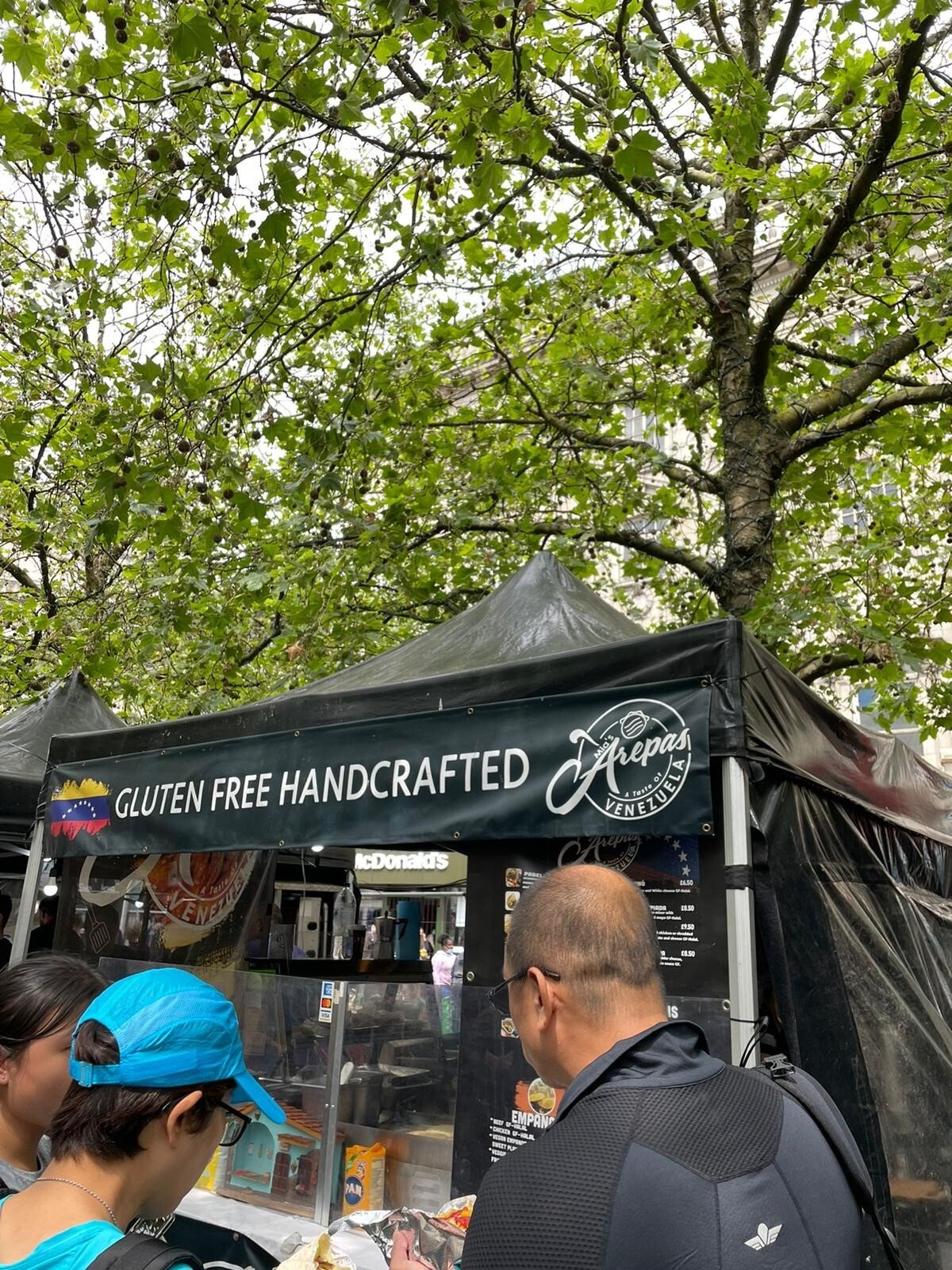Mia’s Arepas: A Taste of Venezuela in Manchester
Debates about its origins aside, there is no question that the arepa is and has been a staple and a comfort food to Colombians and Venezuelans since before the Columbian period. The word “arepa” is thought to be derived from Venezuela’s ancestors, the Cumanagoto people’s word for corn (“erepa”), which forms the basis of the food. Moreover, Colombia’s ancestors, the Chibcha people, hailed corn as a gift from God due to its abundance as a crop.
Women have always been at the centre of Latin American cooking; indigenous women would pound corn in wooden mortars fashioned from the trees, before grinding the corn to form a paste that they could mould into the arepas that fed their communities. This laborious and tedious process is rarely employed in modern times after the industrialisation of corn maize, although women still put love and effort into making their arepas.
Whilst the arepa is a staple on Colombian and Venezuelan breakfast, lunch, and dinner tables, it is increasingly becoming popular outside of these nations, with a rise of arepa stalls seen even in UK street markets.
For instance, the Street Food Market in Piccadilly Gardens, Manchester hosts street food stalls of various cuisines from all over the world, including Mia’s Arepas. Mia sells a wide range of arepas like the classic “Reina Pepiada”, made with avocado, chicken and mayonnaise, and vegan “La Llanera”, consisting of black beans, avocado and plantain. At Mia’s stall you can also find empanadas and tequeños, a must-have at Venezuelan parties.
What is most fascinating, however, is the crowd that is attracted to Mia’s stall. Despite the fact that most non-Latin American customers have no referent to compare the arepa to, this does not stop them from wanting to try them. Just from being in the area you can tell Mia’s Arepas gets raging reviews, with people willing to cluster around the stall for a taste instead of choosing another stall.
But it is not just the delicious arepas that attract the throng. The general vibe Mia delivers as she serves food is enough to pique interest. She always has Latin music playing and cannot resist dancing along every so often, generating a positive atmosphere that is so distinctly Latinx it has people’s heads turning. It is definitely the liveliest stall in the market, which ensures you will leave with a full stomach and a little personality from Mia.
As a Latin American myself, it makes me so proud to see these aspects of my culture being shared and enjoyed in Manchester. Arepas are something I grew up loving, but never would have expected British people to be so willing to try. It is also nice to see general misconceptions British people hold about Latin America be debunked by Mia with the good vibes she delivers at her stall.
It is satisfying to see and to know that the culture of food preparation indigenous women built has stood the test of time and colonisation. Not only do Colombian and Venezuelan women continue to provide their communities with arepas, but like Mia in Manchester, they are also now spreading this culture internationally, giving people a taste of our culture.
You can follow Mia’s Arepas on Instagram or check out their stall at Piccadilly Gardens Food Market in Manchester.
Open every week Wednesday to Sunday from 11:00-18:00

